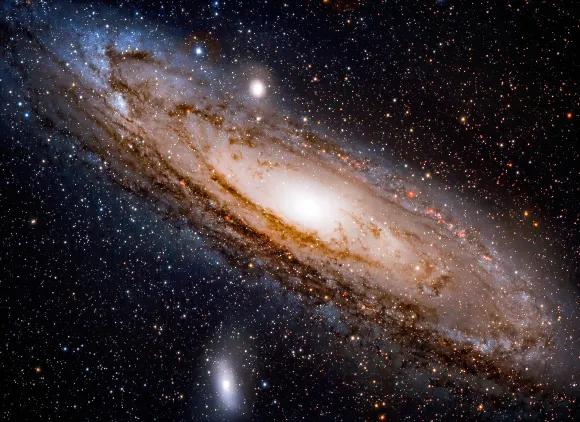Projects by topic
EAC evaluations and studies span research areas ranging from STEM talent and development to assessing the very evaluation methods and tools used to support data-driven decisions at NSF.
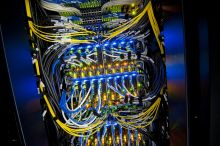
Evaluation of NSF Grants to Broaden Participation in STEM: American Innovation and Competitiveness Act Section 305, May 2024 Under Section 305 of the American Innovation and Competitiveness Act (AICA), Public Law 114–329, NSF is required to report on NSF activities designed to broaden participation of underrepresented populations in science, technology, engineering, and mathematics (STEM) fields. Between fiscal years 2017 and 2022, NSF awarded over 3,200 grants through NSF programs focused on broadening participation in STEM. This report describes the geographic distribution of grants awarded under AICA, discusses the characteristics of lead principal investigators and institutions receiving awards, and reviews program-level evaluations. Full Report (PDF, 1.93 MB)
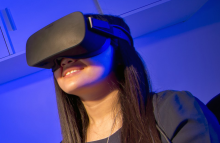

Long-term Educational Outcomes of NSF Research Experiences for Undergraduates (REU) Site participants (2013 and 2014 Cohorts). This fact sheet summarizes postsecondary enrollment and graduation outcomes of 5,088 REU students who participated in an REU Site in either 2013 or 2014 and were matched to National Student Clearinghouse data 7-8 years after program participation. Fact Sheet (PDF, 1.12 MB)

Study of Anti-Harassment Policies, Guidelines, and Communications, June 2022 This study investigates and responds to questions in NSF's learning agenda related to recent anti-harassment policies to promote safe, harassment-free environments for the practice of science. Executive Summary (PDF, 170.61 KB)| Full Report (PDF, 1.18 MB)|Technical Appendix (PDF, 817.54 KB)
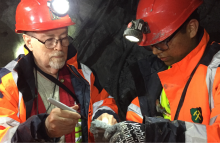
NSF International Research Experiences for Undergraduates: A Comparative Analysis of the IRES and REU Programs, April 2021 This report provides a portrait of participants in the International Research Experiences for Students and Research Experiences for Undergraduates programs, highlighting findings that inform NSF's strategic planning and program improvement efforts. Full Report (PDF, 1.97 MB)
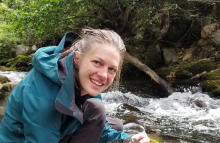
Evaluation of the International Research Experiences for Students (IRES) Program: Survey Analysis, September 2020 This report provides detailed descriptive information on the characteristics of IRES participants, their experiences and satisfaction with the program, and their educational and employment outcomes collected through a survey of former participants. Full Report (PDF, 878.19 KB)
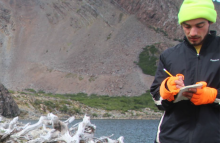
Evaluation of the NSF International Research Experiences for Students (IRES) Program: Portfolio Analysis, Dec. 2019 This report presents (1) an overview of key findings from the literature on international research experiences, (2) a summary of the IRES strategy, (3) a comparison of awarded and declined proposals, (4) a descriptive analysis of the portfolio of IRES awards, (5) a discussion of project implementation activities and outputs, and (6) a set of considerations for ongoing and future evaluation and monitoring efforts. Full Report (PDF, 1003.16 KB)
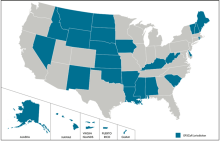
Study of the Established Program to Stimulate Competitive Research (EPSCoR), June 2022 This report presents an exploratory analysis of academic research excellence and competitiveness for EPSCoR using a variety of publicly available data sources. Abstract (PDF, 106.41 KB)| Full Report (PDF, 20.52 MB)
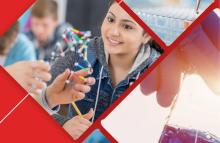
Evaluation of the Centers for Chemical Innovation (CCI) Program (2014 – 2016), Dec. 2019 This report presents evaluation findings on the contribution of the CCI program to increase knowledge, workforce development, commercialization, and public outreach; the role of the center structures and operations in achieving the program goals; and the effectiveness of the two-phase funding model. Executive Summary (PDF, 1.86 MB) |Full Report (PDF, 8.44 MB)

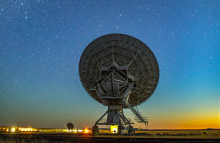
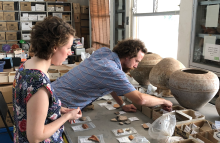
A Review of Funder Instructions and Grant Reviewer Practices for Assessing the Intellectual Merit and Other Impacts of Research This report reviews the existing literature on how reviewers at institutions outside of the U.S. National Science Foundation (NSF) assess nonmedical basic and use-inspired research and science, technology, engineering, and mathematics (STEM) education. It provides evidence about the criteria used to assess grants and factors having important, unimportant, or unstudied impacts on the evaluation of the intellectual merit and broader impacts of grant proposals. Full report (PDF, 1.41 MB)
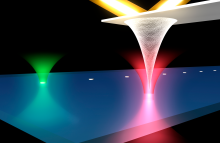
2021 Merit Review Survey Report, October 2023 This report describes survey finding on PI's and Reviewers' satisfaction with the NSF merit review process, including their perceptions of quality, fairness, and burden; drawing information from over 17,000 individuals who shared their experiences submitting or reviewing proposals during Fiscal Year (FY) 2019 and 2020. Full report (PDF, 4.33 MB) EAC data snapshots: Written review quality by experience | Satisfaction by experience | Satisfaction by disability | Fairness among applicants

FY 2021 Merit Review Digest, June 2023 This report provides statistical information on proposals awarded and declined in fiscal year (FY) 2021 based on a snapshot of NSF’s transactional databases taken on October 1, 2021. Full report (PDF, 6.24 MB) |FY 2021 Merit review data (XLSX, 125.34 KB)

NSF Rotator Study, June 2022 This report provides a descriptive portrait of Intergovernmental Personnel Act assignees and an assessment of IPA costs compared with federal employee costs. Full report (PDF, 867.41 KB)

Understanding the Use and Potential Effects of a No-Deadlines Approach, May 2022 This report presents an exploratory application of synthetic control methods to estimate the effect of no-deadlines for proposal submissions on NSF program outcomes, including proposal volume, requested award amount, and reviewer workload and ratings. Full report (PDF, 2.72 MB)

Convergence Accelerator Summary Report: Descriptive Characteristics from 2019 to 2021 This report provides descriptive statistics on applicants, grantees, and projects for the 2019, 2020, and 2021 cohorts in the Convergence Accelerator program using NSF administrative data. Full Report (PDF, 1.35 MB)

No-Deadlines Synthetic Control and Exploratory Outcomes Analysis and Recommendations for Future Rigorous Evaluation, May 2022 This report showcases the use of synthetic control methods to examine the effects of no-deadlines using NSF administrative data. Full Report (PDF, 1.81 MB)

NSF Capacity Assessment Report, March 2022 This report describes NSF's design, implementation and findings of an integrated assessment of data maturity and capacity for evidence generation and use; and an analysis of ongoing evidence-building activities. Full Report (PDF, 7 MB)


